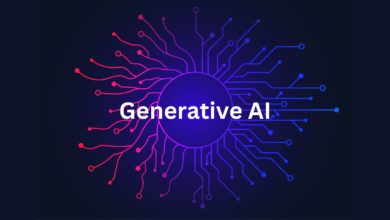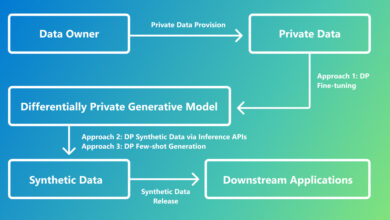Generative AI and CT path to innovation, growth

Connecticut stands at a critical juncture in its technological evolution. As generative AI revolutionizes industries worldwide, from healthcare giants like Pfizer using AI to accelerate drug discovery, to manufacturing powerhouses like Pratt & Whitney leveraging AI for predictive maintenance, it is imperative that our state seizes this opportunity to secure its position as a leader in the AI era. By investing in tech education, fostering partnerships, and promoting lifelong learning, Connecticut can cultivate a skilled workforce ready to harness the power of generative AI for innovation and economic growth.
Embracing generative AI is not without its challenges. As AI automates tasks across sectors, concerns arise about job displacement and the widening skills gap. To address these issues head-on, Connecticut must prioritize AI education at all levels. By integrating AI fundamentals into K-12 curricula and expanding AI programs in higher education, we can equip our students with the skills necessary to thrive in the AI-driven economy. Moreover, policymakers must invest in reskilling and upskilling programs for the existing workforce, ensuring that no one is left behind in the AI revolution.
To foster a vibrant AI ecosystem, Connecticut must also promote collaborations between academia and industry. Partnerships with tech giants like IBM, which has a strong presence in our state, and emerging AI startups will provide students with valuable hands-on experience and mentorship opportunities. These collaborations can lead to the establishment of AI incubators and accelerators, attracting top talent and driving economic development. Policymakers should incentivize such partnerships through targeted funding and tax incentives, creating a supportive environment for AI innovation.
Additionally, Connecticut must address the ethical implications of generative AI head-on. As AI systems become more advanced, concerns arise about bias, privacy, and the potential misuse of the technology. To mitigate these risks, policymakers must work with experts to develop robust regulations and guidelines for the development and deployment of AI. By taking a proactive approach to AI governance, Connecticut can ensure that the benefits of generative AI are realized while minimizing potential harm.
Embracing generative AI also requires a commitment to diversity and inclusion. By providing equal access to AI education and training programs, particularly for underrepresented communities, Connecticut can tap into a broader pool of talent and foster innovation from all corners of our state. Policymakers should invest in initiatives that close the digital divide and promote diversity in the tech industry, ensuring that the AI revolution benefits all residents.
The path forward is clear: Connecticut must act now to embrace generative AI and secure its position as a leader in the AI era. By investing in AI education, fostering partnerships, promoting lifelong learning, addressing ethical concerns, and prioritizing diversity and inclusion, our state can cultivate a skilled workforce ready to harness the power of AI for innovation and economic growth. The consequences of inaction are too great to ignore. Connecticut’s future prosperity hinges on its ability to adapt to the AI revolution.
Kevin J. Conlan is the chief technology officer with DCI Resources, LLC, and IT firm specializing in Cybersecurity Training and Workforce Development.



